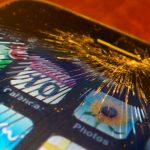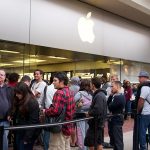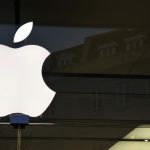Apple vs Samsung: In a good patent war no one wins

In the 1983 classic movie WarGames, Matthew Broderick hacks into a top secret super-computer and comes close to initiating World War III. The global catastrophe is only avoided when the computer, "Joshua", starts playing Tic Tac Toe against itself and discovers it can’t win, coming to the inevitable conclusion that "the only winning move is not to play."
It’s a film that maybe Apple and Samsung should sit down and watch together. While the jury is still out in their current big Californian patent case, in South Korea, Samsung’s home and just one of several countries where the global lawsuit is being fought, the court has just ruled simultaneously that both firms infringed each other’s patents. And, as a result, ordered them to both pay damages, and imposed sales bans on all related products (none of which are the latest models).
Apple vs Samsung: The defense of common sense

The transpiring events of Apple’s lawsuit against Samsung divides the technology industry and hones in on several overarching intellectual property talking points and issues that far extend the perpetual "eye for an eye" battle the companies occupy. Many writers and pundits state that the lawsuit will be a primary stepping stone to IP and patent reform and will be a primary decider of the future of patent law in the technology industry.
What the trial really rises to the surface: the two differing approaches with which Apple and Samsung view the situation. Apple’s perspective hinges on protecting the intrinsic and unique value of their intellectual property, whereas Samsung focuses more on the end game of consumer perception.
What does Apple REALLY want from Samsung?

Answer: One-hundred percent of all profits gained from Sammy's smartphones and injunction barring sales of future models. Is that clear enough for you? Because it might not be from the stilted news stories about the Apple-Samsung trial under way here in California. Apple feels entitled to everything. That's how highly the company's top-brass thinks about their intellectual property and how little they do about Samsung's.
Instead of reading about how much Apple demands, blogs and news reports focus on the puny 2.4 percent per phone Samsung asks Apple for so-called essential patents or the extent of copying as told by the fruit-logo company. The story you read everyday about the Apple-Samsung trial is a good yarn, but there's enough urban legend to warrant a Snopes.com entry.
Oracle and Google ordered to come forward with names of paid journalists

Despite proceedings being almost over, the Oracle v. Google trial took an unexpected turn yesterday, on August 7. U.S. District Judge William Alsup ordered both parties to come forward with the names of the people they paid that could make public comments related to the case in point, according to a court order released yesterday.
Judge William Alsup gave an order of disclosure for financial relationships concerning the involvement of commentators on case-related issues. The court order includes print and Internet authors, bloggers, commentators and journalists that have published, or may in the future publish comments related to the issues in this case.
Anti-Patent Troll bill to 'save high-tech innovators' hits House

"Patent trolls," or non-producing companies that buy up patents in hopes of litigating their way to profit, have been in the technology news for years. They have, in effect, created a cottage industry within tech where one company after another uses poorly written and overly broad patents to block new products, squash competing products from reaching the market, or just to try to defend themselves from possible legal extortion. However, a new bipartisan bill coming from the desk of US Congressional Representative Peter DeFazio (D-OR), cosponsored by Rep. Jason Chaffetz (R-UT) will be the first legislative deterrent to predatory patent troll lawsuits. The bill's goal is to amend Chapter 29 of title 35 of United States legal Code.
The new bill, H.R 6245 112th Congress, 2011–2012, 'Saving High-Tech Innovators from Egregious Legal Disputes (SHIELD) Act' [GovTrack] could change the patent lawsuit game. The introduction to the bill states:
Apple scoops up security firm AuthenTec for $356 million

Apple has agreed to purchase security firm AuthenTec for $356 million, a Thursday SEC filing from the Melbourne, Fla.-based company indicates. Apple is likely looking to bolster the security credentials of its products, and with the recent focus by hackers on Apple's products, that might be a good idea.
AuthenTec produces a variety of software and hardware-based security solutions, including fingerprint sensors. Its VPN security software is already included in smartphones and tablets from Samsung, and its DRM platform is used to protect streaming content within the HBO GO application.
What’s stopping Apple and Samsung from settling?

Patent settlement talks between Apple and Samsung have been planned for a while, and despite the major importance they have to both companies, it wasn't until last week that executives met to discuss whether they can agree on ending the quarrel between them. So what happened? They couldn't set their differences aside as the settlement talks have hit a bump in the road, not agreeing on each other’s value when it comes to patents.
After numerous meetings in court it's clear that settlement is the best option, but the companies haven't yet arrived at a compromise, and the two companies' other legal disputes haven’t been put on hold, as Apple is still trying to resolve an issue it has with Samsung in a San Jose federal court on July 30.
Who's the patent bully now? Apple or Samsung?

Samsung and Apple are two of the most popular smartphone and tablet manufacturers in the world right now and those top spots don’t come without responsibilities. But there's a disconnection somewhere in the corporate brains, with the companies seeing these responsibilities as green lights to be at each other’s throat in every major market over patents -- all that the cost of customer choice and satisfaction.
The latest round in the never-ending patent war between Samsung and Apple began today in Australia, where a local Judge started hearing evidence on their latest legal dispute. Cupertino, Calif.-based Apple claims patent infringement. The two companies dispute whether the touchscreen technology used by Samsung’s Galaxy Tab 10.1 violates Apple owned patents. The South Korean manufacturer's counter-claim: Apple uses 3G patents without a license, which is supposed to be available on fair, reasonable and non-discriminatory (FRAND) terms.
UK Judge tells Apple to run adverts Samsung doesn't copy iPad

According to the Bloomsberg News Agency a UK judge has ordered Apple to publish a notice on its website and in various newspapers and magazines (the Financial Times, the Daily Mail, Guardian Mobile magazine, and T3) informing visitors and readers that Samsung did not copy the design of the iPad. The judge, Colin Birss, also stipulated that the notice on Apple’s website should remain there for a minimum of six months.
The order follows Apple’s failed attempt to block sales of Samsung’s Galaxy Tab tablets in the United Kingdom and is apparently intended to correct any damaging impressions consumers may have been given about the South Korean company as a result of the litigation.
Watch out, Apple, HTC is coming for you

HTC is like a child with shiny new toy taken from HP and used against neighborhood bully Apple. Enjoying its December 2011 patent purchase, yesterday the Taiwanese smartphone manufacturer filed a counterclaim in a Florida court, accusing Apple of infringing on two patents. HTC wants to keep momentum after a win against Apple in a UK court, invalidated the famous "slide to unlock" patent.
Apple has targeted major competitors -- HTC, Motorola Mobility and Samsung primarily -- with patent infringement lawsuits. While counterclaims are common, HTC has so far mostly been on the losing end against Apple. HTC purchased two patents -- US Patent No. 7,120,684, titled "Installation of network services in an embedded network server", and 7,571,221, named "Method and system for central management of a computer network". Both patents are claimed to be infringed by the fruit company.
Apple threatens retailers: Stop selling Samsung Galaxy devices now or else

It's bad enough that Apple uses patents to bully competitors. Now the company threatens retail partners, demanding they remove two Samsung devices from store shelves. Apparently, court orders aren't good enough for Apple, which also ignores one of them.
Apple, through its army of lawyers, has sent a letter to an unknown number of retailers and carriers selling the Galaxy Tab 10.1 tablet and Galaxy Nexus smartphone. Last month a US court issued temporary injunctions against both devices, but temporarily lifted the one against Galaxy Nexus.
I won’t boycott Apple

My colleague Joe Wilcox certainly created a storm when he declared his independence from Apple on July 4th. Annoyed by what he saw as the fruit company’s aggressive patent bullying, which he believes "thwarts competition and takes away consumer choice", he sold his remaining Apple devices, and now refuses to touch anything the company makes.
He’s not alone. The #boycottapple hashtag has gained a fair amount of traction on Google+, Reddit and Twitter and many, many words have been written on the subject. Read Joe’s articles if you need more background.
Motorola and Microsoft suspend some patent disputes

Microsoft and Motorola Mobility pulled back from their bitter patent dispute in the courts, as both sides joined together Tuesday to ask for a temporary stay to all ongoing patent disputes in the US District Court for the Western District of Washington. This involves three cases currently being heard by that court, and refocuses arguments on so-called FRAND (fair, reasonable and non-discriminatory) licensing terms.
Motorola is accused -- not only by Microsoft, but by other targets of the company's patent suits -- of attempting to demand too high royalties for standards essential patents. The company's efforts have frustrated judges, too, with one publicly admonishing both Motorola and Microsoft of using the courts to gain an upper hand in negotiations.
Should you boycott Apple?

What's right for me might not be for you.
On July 4th, I declared independence from Apple, weeks after pledging to boycott the company's products. The independence story is among my post popular posts (based on pageviews), and it's most-Liked and most-commented. I inadvertently tapped into some surprisingly strong emotions about the fruit-logo company and unmeaningly joined the boycott Apple movement. Looks like I'm not the only person mad about recent patent bullying, although other boycotters add more complaints.
Samsung isn't cool enough to copy Apple

Today, UK Judge Colin Birss confirms what Apple fans have claimed for years: Samsung isn't "cool enough" to copy the trendy fruit-logo company. But the result is opposite their meaning about copying badly. Birss ruled that Samsung's Galaxy Tab family of tablets do not imitate iPad, meaning violate Apple's registered design -- they're not "cool enough" and "do not have the same understated and extreme simplicity which is possessed by the Apple design".
The court gave the win to Samsung by stating that Galaxy Tab 10.1 is different enough to the iPad, being thinner and with a detailed back cover. Apple spokesman Alan Hely doesn't agree, saying: "This kind of blatant copying is wrong and, as we’ve said many times before, we need to protect Apple’s intellectual property". This is what happens when you lose and can't do it with dignity.
Recent Headlines
Most Commented Stories
BetaNews, your source for breaking tech news, reviews, and in-depth reporting since 1998.
Regional iGaming Content
© 1998-2025 BetaNews, Inc. All Rights Reserved. About Us - Privacy Policy - Cookie Policy - Sitemap.